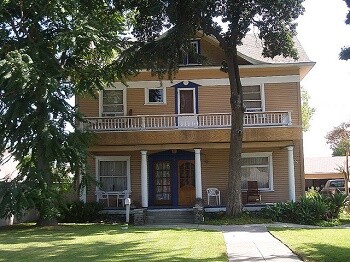A reverse mortgage can be a viable option for seniors who would like to supplement their social security income.

Reputable lenders, like Better Rate Mortgage, will make sure that you understand the benefits and risks of a reverse mortgage, and help you decide if it is right for your situation, before you sign on for one.
How Does a Reverse Mortgage Work?
As a responsible home owner, you have been making timely mortgage payments on your house for years, possibly decades. This has allowed you to build up equity in your home. Equity simply means that you now have value in the property above what is owed on it. A reverse mortgage allows you to tap into that equity to finance other things.
At first glance that seems like a home equity loan, and in some ways it is similar. The major difference though, is that as a senior, you are receiving monthly payments on that equity instead of making them for the loan. With a reverse mortgage, the borrower has the option of receiving one large lump sum of cash, monthly payments for so long as the borrower is living at the address, a line of credit or any combination of the three. Many seniors like to do a small lump sum cash advance to finance a big expense and then take the rest as monthly payments to supplement their income.
Who Qualifies For a Reverse Mortgage?
Any homeowner must be at least 62 years old to qualify for a reverse mortgage. In most cases, credit scores are not taken into consideration. What does make a difference is the amount of equity in the home and its condition.
How Much Can Be Borrowed?
The borrower’s age and the equity in the property impact the amount that can be borrowed. The loan must first be used to pay off the balance of any mortgage or lien on the property. What is left after that is the available cash. Both Fannie Mae and the U.S. Department of Housing and Urban Development offer special reverse mortgage backing to seniors.
What Can the Money Be Used For?
Typically, how the money obtained by the homeowner with a reverse mortgage is spent is at their discretion. Many will use it to help cover unexpected medical bills and treatments, while others may use it to finance a special vacation or other large purpose. The vast majority of seniors though are using the monthly payment option and using the funds as a second source of income to help pay monthly expenses.
When Do I Have to Start Paying the Loan Back?
A reverse mortgage is paid back when the home is sold. Until that time, you still retain ownership and hold the deed. Talk with a lending expert like Better Rate Mortgage to help you decide if a reverse mortgage will work in your circumstances. This is a great way for a senior citizen to be rewarded for all the years spent keeping up with their home and the mortgage payments. Call Better Rate Mortgage at (314) 361-9979 for more information.
Photo credit: The Marmot via Flickr

